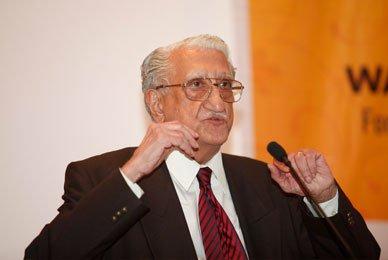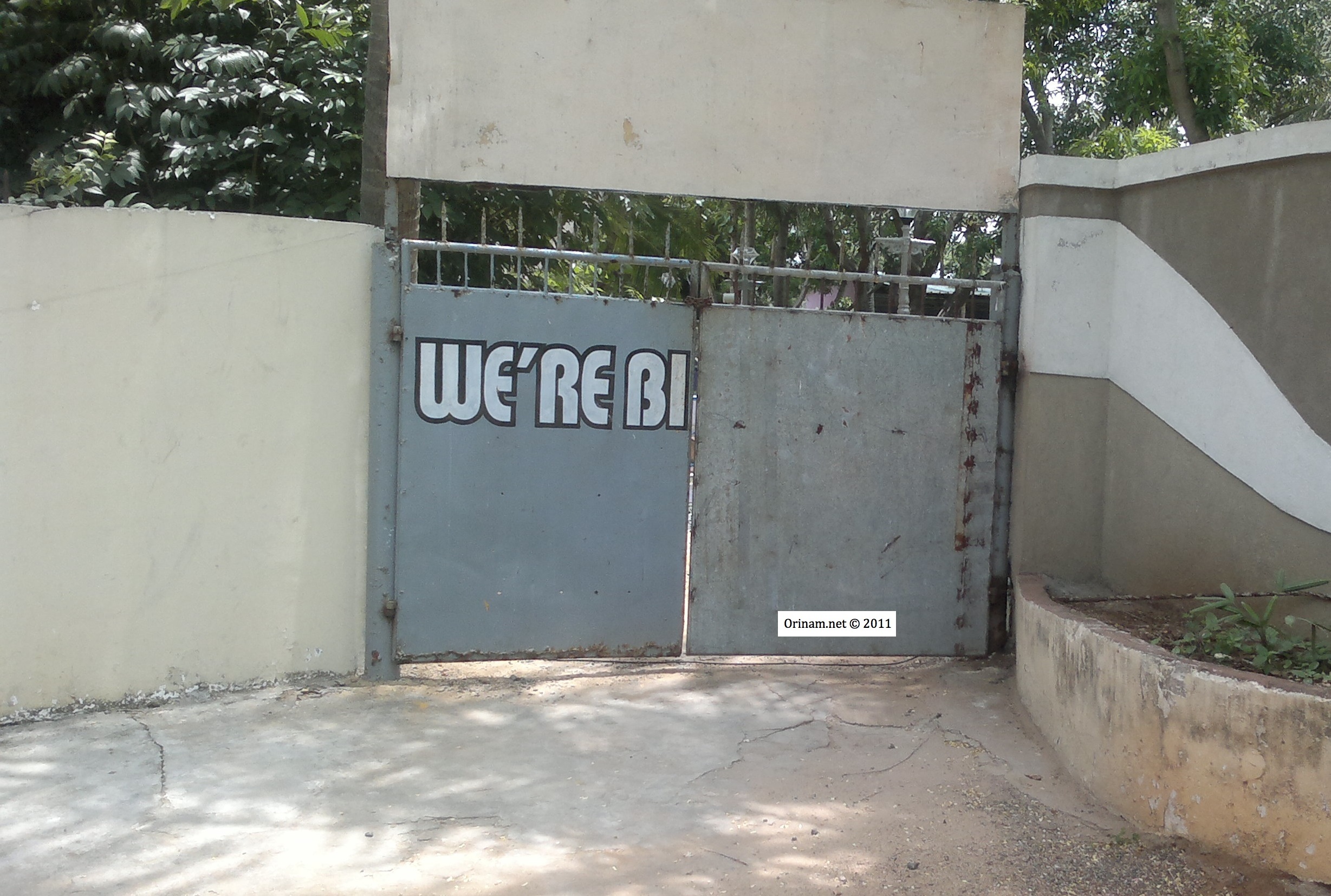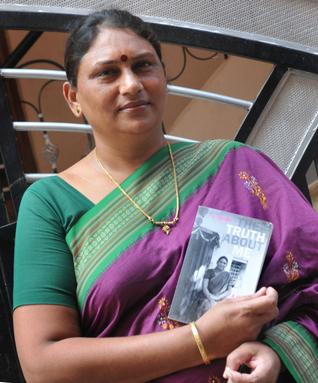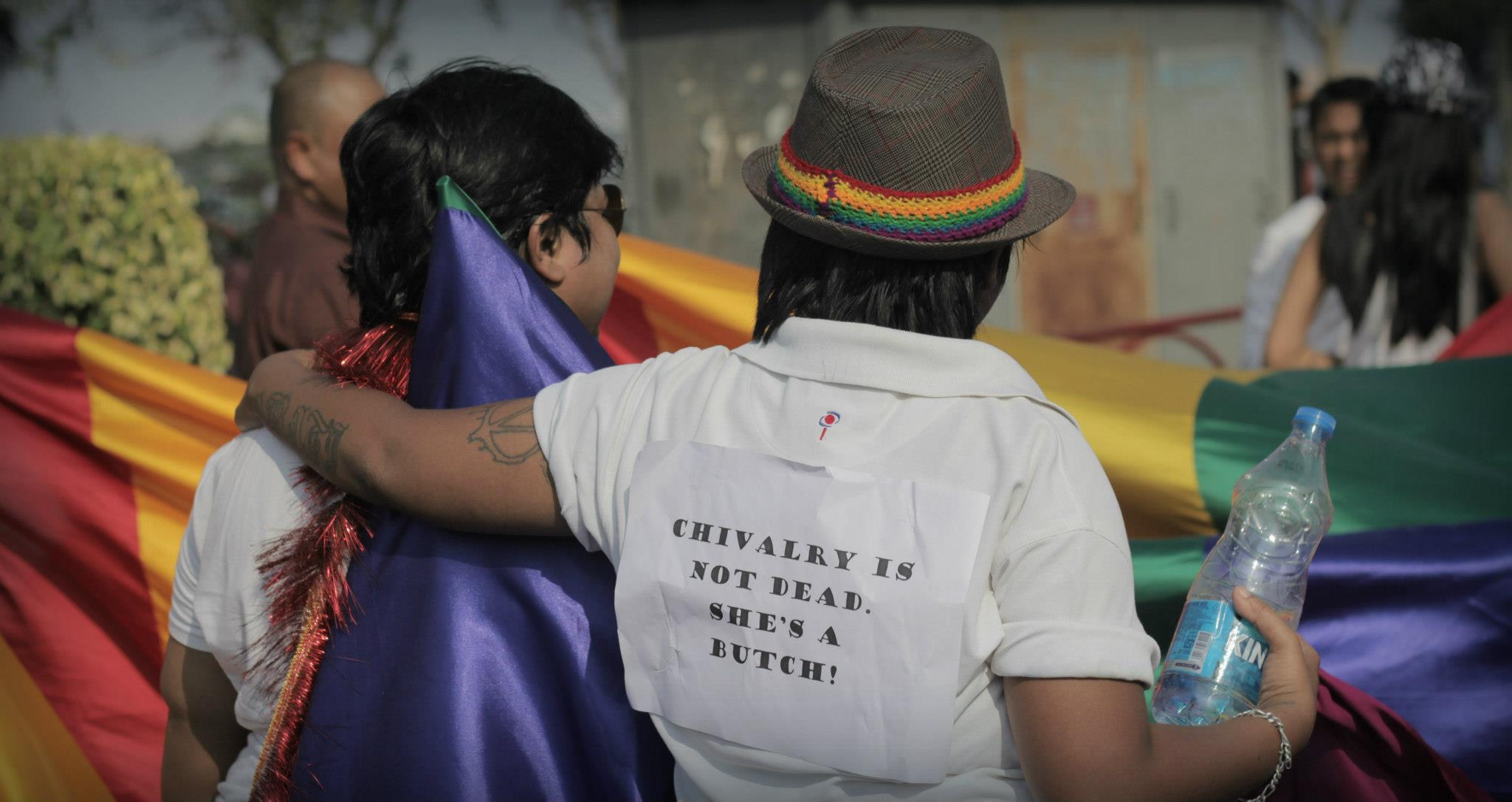Anil Divan: A friend of the LGBT community


Senior Advocate Anil Divan, described by the Indian Express as “the conscience of the bar”[1] – passed away on 20 March, 2017.
Tributes have been pouring in for Mr. Divan’s contribution to many matters of public importance – his role as amicus curaie in cases concerning corruption at the higher levels of the bureaucracy and political leadership: the Jain Hawala case, the Chandraswami case, the Indian bank scam case – and his advocacy on behalf of Ram Jethmalani in the Black Money case. [2]
What has not been noted so far is Mr. Divan’s unstinting support to the LGBT community. While the LGBT community is more familiar with the name of Vivek Divan who has been a long standing queer activist, and Shyam Divan who has represented Voices Against 377, their father Anil Divan has been among the earliest supporters of the rights of the LGBT community.
Our struggle in court has seen some success, and has had its share of setbacks. One early setback was the Delhi High Court’s 2004 dismissal of Naz foundation’s challenge to Section 377 on the grounds that the challenge was merely ‘academic’, because Naz Foundation was not a person directly affected by the provision. Mr. Divan, acting pro bono publico – i.e., in public interest and without a fee – argued on behalf of Lawyers’ Collective and Naz Foundation, and asked the High Court to reconsider its decision. Lawyers present at that hearing recollect a hostile bench, unwilling to admit it had erred. But those lawyers also recollect Mr Divan’s resolute, dignified and impassioned advocacy – a refusal to yield until every error in the court’s reasoning had been laid bare, and every opportunity given to the Bench to remedy those errors. Although Mr. Divan was unsuccessful and that bench could not be persuaded to reconsider its decision, the Supreme Court was to subsequently overturn that decision and direct the High Court to rehear the petition. And it was at this rehearing that the High Court bench of Justices A.P. Shah and Justice Dr. S. Muralidhar were persuaded to deliver the celebrated Naz foundation versus Union of India judgment of 02 June 2009.
But Mr. Anil Divan’s support to the LGBT cause was not limited to in-court-advocacy. In 2005, he added his name to Vikram Seth’s open letter calling for repeal of section 377, and to an end to discrimination on the grounds of sexual orientation. He was one of only three Senior Advocates to do so.
And in October 2006, Mr. Divan detailed in the pages of The Hindu, in simple and clear language accessible to lay readers, developments in judicial understanding of sexuality rights as human rights, in Ireland, the United Kingdom, South Africa, Hong Kong, the United States, and the European Court of Human Rights. He referenced an opinion of a US Supreme Court judge that “only the most wilful blindness could obscure the fact that sexual intimacy is a sensitive, key relationship of human existence, central in family life, community welfare and the development of human personality”[3] and then said:
‘India must march in step with other democracies on this human rights issue. It must emulate the sentiment of the European Court that such restrictions on the most intimate aspect of private life are not necessary in a democratic society that values tolerance and broadmindedness.’
As a much-respected public intellectual, and an acknowledged scholar of constitutional law and public law, Mr. Divan’s newspaper opinion was of particular significance.
The High Court decision of Justices Shah and Muralidhar had upset approximately 150 years of judicial reasoning and precedent. Predictably, it was met with a flurry of appeals challenging it, and asking for it to be immediately and summarily stayed. Mr. Divan stepped-up again for the LGBT community to argue that to stay the judgment would cause irreparable harm to the lives and the dignity of the many whom the High Court judgement had decriminalised. This time, however, he was joined by several other Senior Advocates. Stay was refused and the High Court judgment remained in operation for four years until it was overturned by the Supreme Court on 11 December 2013, in Suresh Koushal vs Naz Foundation.
Mr. Divan’s commitment to the rights of the LGBT community was a part of his broader commitment to constitutional principles and the rule of law. That commitment was on display when he resisted before the Supreme Court, the central government’s claim that it could pay less than minimum wage for work performed under the Mahatma Gandhi National Rural Employment Guarantee Act (‘MGNREGA’). That claim had been rejected by the Karnataka High Court and the central government was challenging the Karnataka High Court’s decision before the Supreme Court. The union government threw its weight behind that challenge and had its highest ranking law officer – the Solicitor General (SG), represent it. After the SG had made a forceful, persuasive, and compelling argument for staying the High Court judgement, referencing the limits of the state’s financial capacity, the intentionality behind the Employment Guarantee Act, the likelihood of a mismatch between budgetary allocation and minimum wage, et cetera, the bench seemed convinced of the need to stay the High Court’s judgement. More worryingly, the first hearing of the case was happening on a ‘miscellaneous day’, on which days most cases are dealt with in a matter of minutes, and the SG appeared to have used-up all the time and patience that the bench had for one case. By the time the SG was winding down his arguments, stay of the High Court judgement seemed a foregone conclusion: until, that is, Mr Divan rose to his feet and boomed – “You will not pass any orders until you have heard me”. Mr Divan then proceeded to conduct a masterly exposition of 45 years of the Supreme Court’s minimum wage jurisprudence, with barely an interruption, from bench or from adversary. When he was finished, there was no doubt that the SG’s request for stay of operation of the High Court judgement was not to be granted.
Mr. Divan’s respect for constitutional principle made him a watchful critic of the High Courts and the Supreme Court. He is quoted as having said ‘India is like a mini-Europe. There is great diversity. And what keeps this diversity together is our judiciary. Is it then not important that it be kept independent and separate from the executive?”[4]. And so, when Parliament’s attempted fix of the broken system for the appointments of Judges to the High Court and the Supreme Court, seemed to tamper with the core tenet of impendence of the judiciary Mr. Divan represented the Bar Association of India, challenging the constitutionality of the parliamentary solution. It is reported that Mr. Divan’s arguments weighed substantially with the Supreme Court when it struck down the amendments to the Constitution that provided for the National Judicial Appointments Commission.
For the better part of the life of the Indian republic, the Supreme Court had held that parties who had finally lost their cases before it, could ask for the decision against them to be reconsidered/ reviewed by that court only once, and that too, only on very limited grounds. By that standard, after the Supreme Court had, by an order passed on 28 January 2014, refused to review its 11 December 2013 judgement reversing the Delhi High Court judgement of Justices Shah and Muralidhar, the challenge to the constitutionality of section 377 would have ended. In a landmark decision in April 2002 however (Rupa Ashok Hurra vs Ashok Hurra), the Supreme Court had declared that when it had been established that a judgement rendered by it had resulted in a “gross miscarriage of justice”, “it would not only be proper but also obligatory both legally and morally to rectify the error”. This judgement was based on a careful and studied review of the jurisprudence of several other countries as well as the Supreme Court’s practice over the years. The Supreme Court was assisted in reaching its conclusion by the erudition of a handful of its most respected senior advocates, among who was Anil B. Divan. And it is this decision, arguably creating an entirely new source of power in the Supreme Court, which has allowed the Supreme Court to reconsider its unfortunate decision in Suresh Kumar Koushal v. Naz Foundation, because that decision resulted in a “gross miscarriage of justice”.
In his preface to a collection of his essays “On the Front Foot”, Anil Divan stated that the book aimed at illuminating the spirit of courage displayed when, in moments of crisis, people have chosen to “stand up and be counted”. After a quick listing of some such moments and persons, the preface narrates an incident reported from Robben Island prison, during South Africa’s apartheid years. The story goes that the complete works of Shakespeare were smuggled into Robben Island prison, and the book was surreptitiously circulated amongst prisoners, and each was asked to mark their favourite passage. Nelson Mandela – reports Mr. Divan – marked out Caesar’s words “Cowards die many times before their deaths. The valiant never taste of death, but once”. Having narrated Mandela’s preferred quotation, Mr. Divan closed his preface with these words:
“Each generation reaches its finest hour by inspiring the next, by sharing its priceless experiences and courageous battles, in the never-ending struggle in support of the independence of the judiciary to uphold the Rule of Law, founded on Human Rights.”
In his courageous battles, in his struggles to support the independence of the judiciary, and in his striving to uphold the rule of law and human rights, Mr. Divan’s life is the finest hour of his generation, an inspiration to the next.
Lawyers representing Voices Against 377 in the Delhi High Court and Supreme Court
References
[1] (http://indianexpress.com/article/india/conscience-of-the-bar-anil-divan-dies-at-86-4578244/).
[2] http://www.livelaw.in/india-lost-great-lawyer-tribute-anil-divan-ram-jethmalani/, http://barandbench.com/senior-advocate-anil-divan-no/, http://www.legallyindia.com/home/anil-divan-legendary-senior-counsel-pil-pioneer-died-today-20170320-8355, and http://www.outlookindia.com/newsscroll/senior-advocate-anil-divan-passes-away/1010753.
[3]http://www.thehindu.com/todays-paper/tp-opinion/human-rights-versus-section-377/article3059822.ece
[4]http://barandbench.com/senior-advocate-anil-divan-no/




